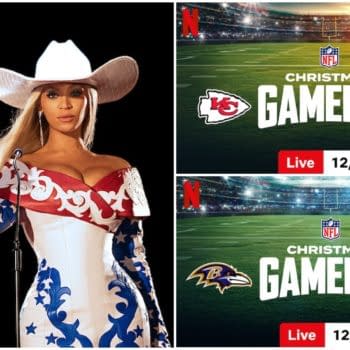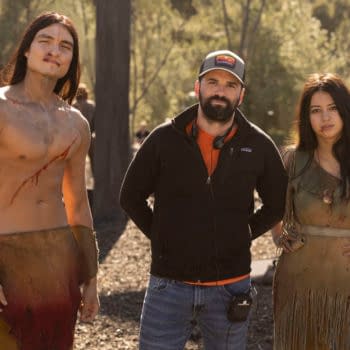Posted in: Current News, Editor's Picks TV News, Movies, TV | Tagged: america ferrera, american alien, cable, comedy, HRL, humor, immigration, nbc, Patricia Cardoso, Real Women Have Curves, revenge, Sierra Teller Ornelas, space comedy, streaming, Sunil Nayar, television, Teri Weinberg, tv, Ugly Betty
American Alien: NBC To Develop Space Comedy From Superstore's America Ferrera

The creators behind American Alien are taking the concept of the "immigration experience" to a more planetary level, with NBC set to develop the space alien comedy from Superstore co-executive producer Sierra Teller Ornelas (Brooklyn Nine-Nine, Happy Endings), star and producer America Ferrera (Ugly Betty, The Good Wife), Teri Weinberg (The Office, The Tudors) and Universal TV. Teller Ornelas will serve as writer; and will also executive produce with Ferrera and Weinberg.
American Alien introduces us to Denise "Dee Dee" and Sonny Mendoza, a brother-and-sister team in Tucson, Arizona, who struggle to keep their working-class jobs while also protecting vulnerable space aliens from the everyday pitfalls of their newly adopted hometown-and home planet.

Ferrera has expanded her power base in Hollywood by expanding beyond acting and into production through her new, yet-to-be-named production banner. American Alien represents her second programming sale, with the first being an untitled legal drama with former Revenge showrunner Sunil Nayar set at NBC. But as far as Ferrera is concerned, she wouldn't have the success she's had if it wasn't for Patricia Cardoso's coming-of-age drama, Real Women Have Curves:
"Having Real Women Have Curves as my first large film experience set the tone for the career I wanted, and what I sought out in projects afterward. I realized I could do what I love and tell stories that had the power to make people feel seen. While that's by no means what I set out to do at 17 years old, it set the tone for what I saw as possible [for myself]. The next big movie I did was Sisterhood of the Traveling Pants, then Ugly Betty. Obviously the similarity [between the parts is there in terms of] questioning what we consider traditionally beautiful. When any woman is onscreen, that theme feels present to me. I don't think I equated the two [projects], except to say that, for me, when I heard about Ugly Betty and the character, I had the same feeling there that I did when I read Real Women Have Curves: I've never seen the world through this woman before, with this experience, with this family, with this background."















